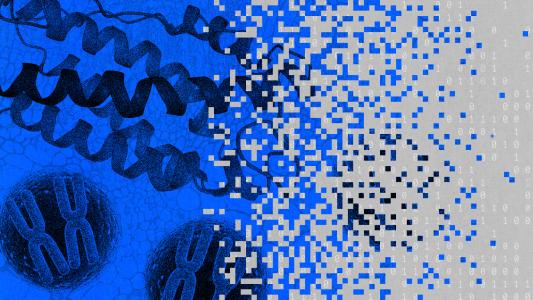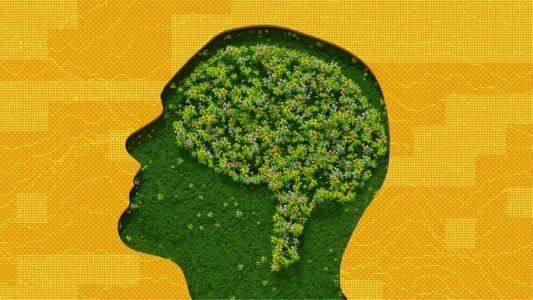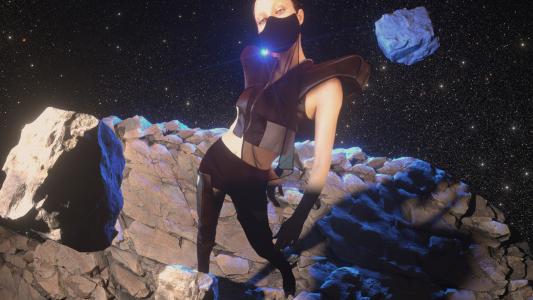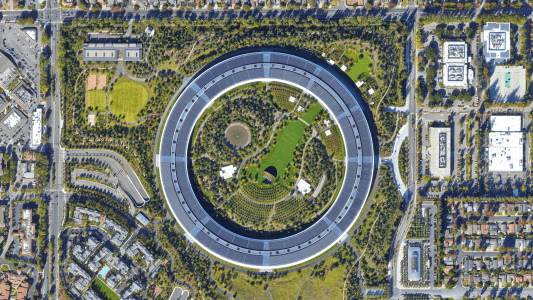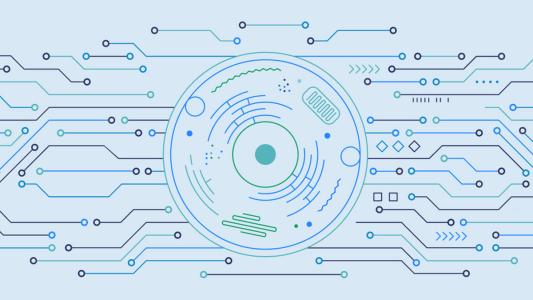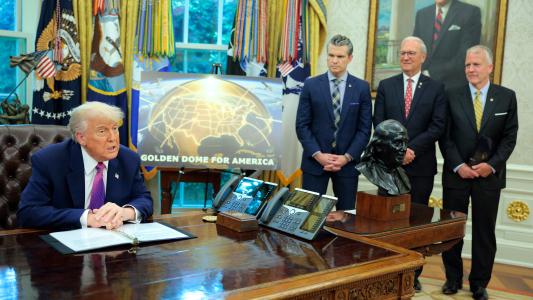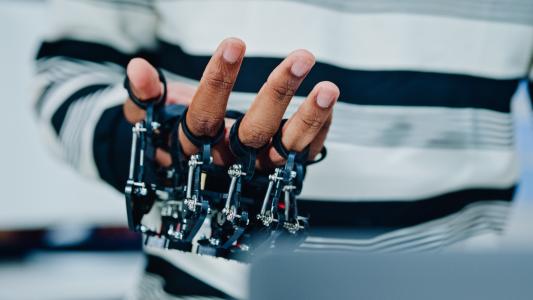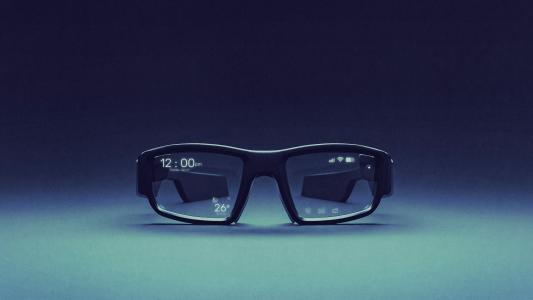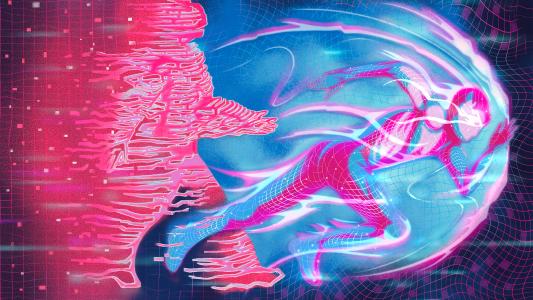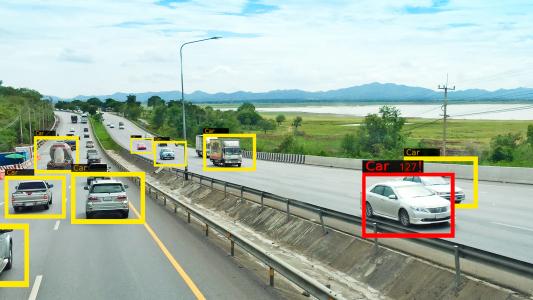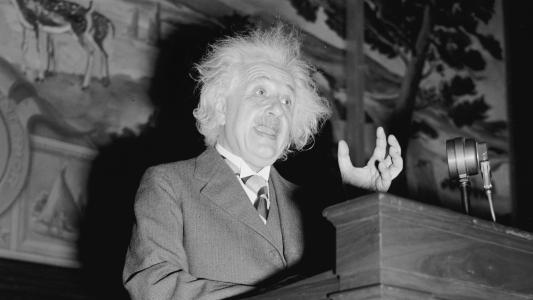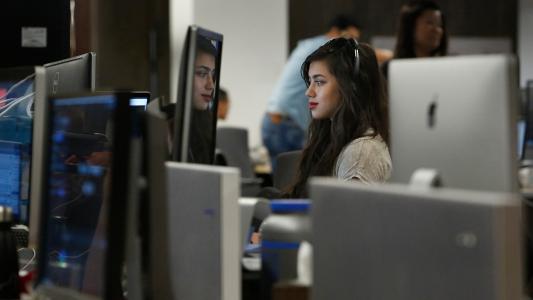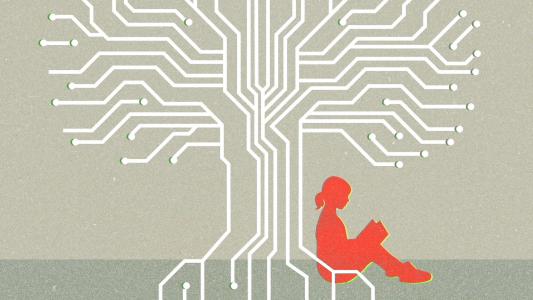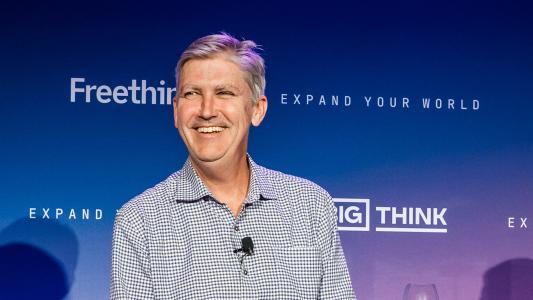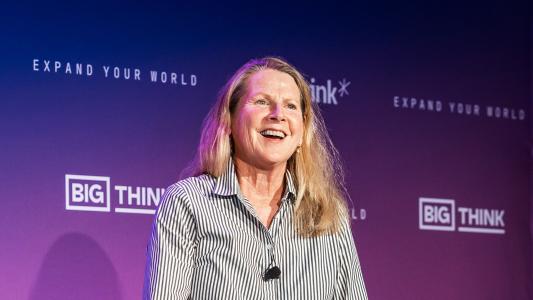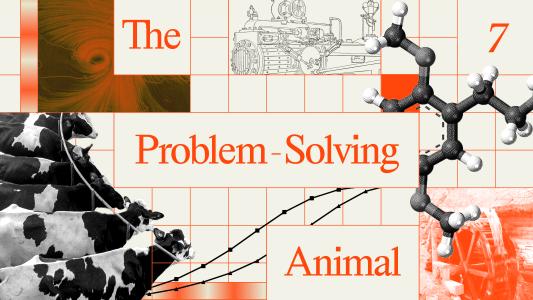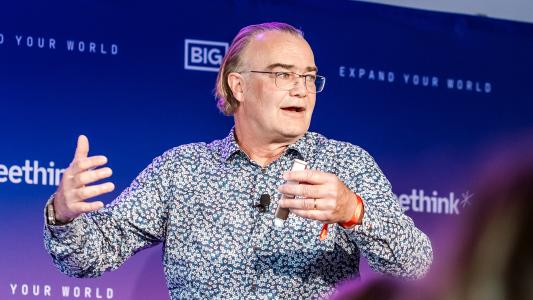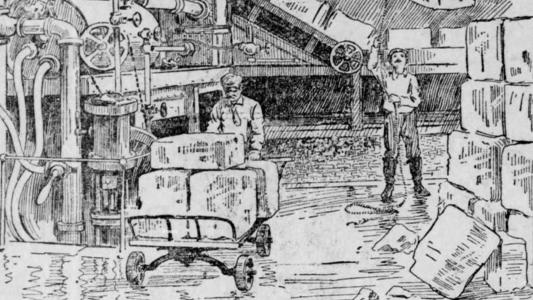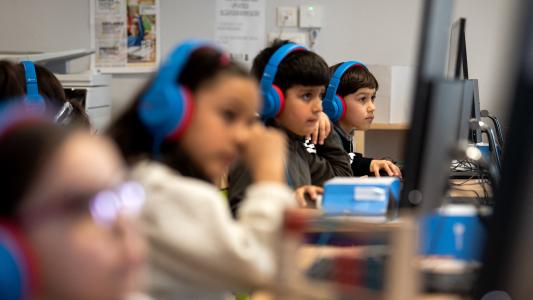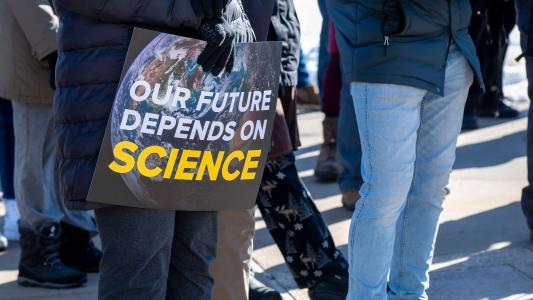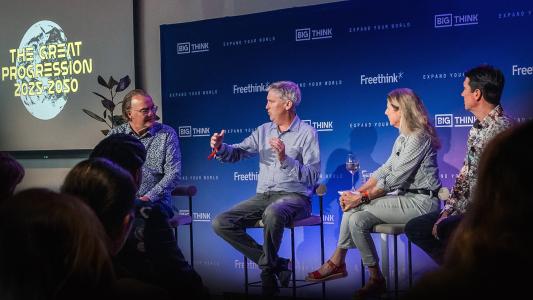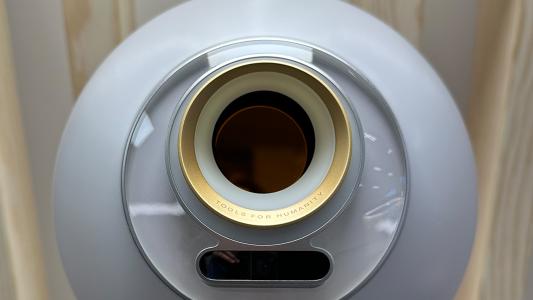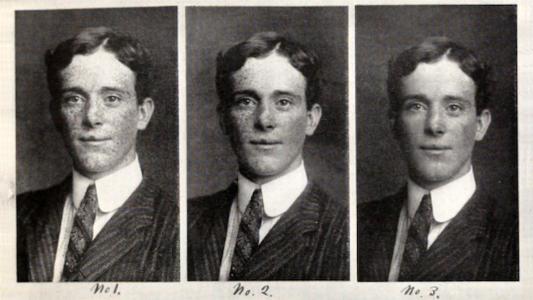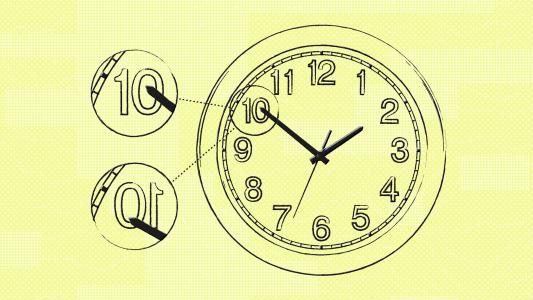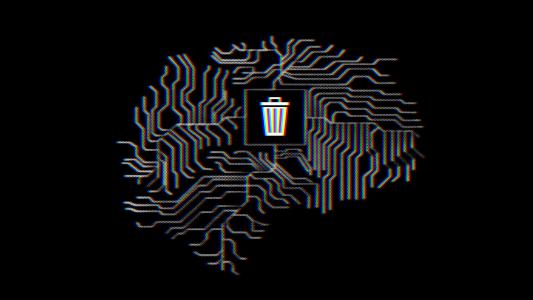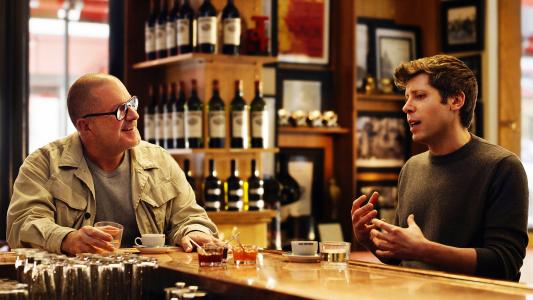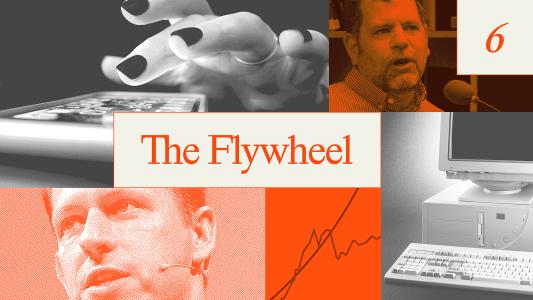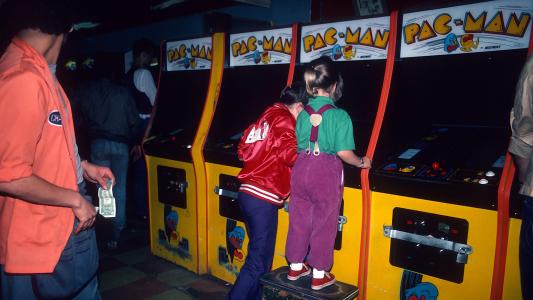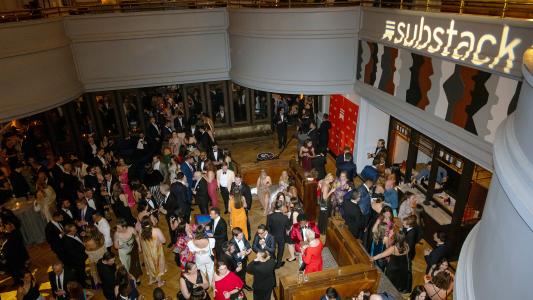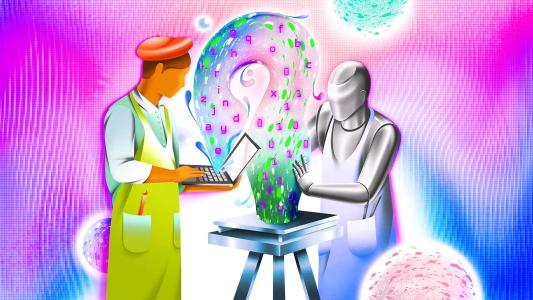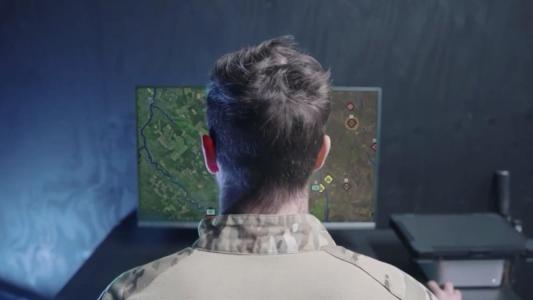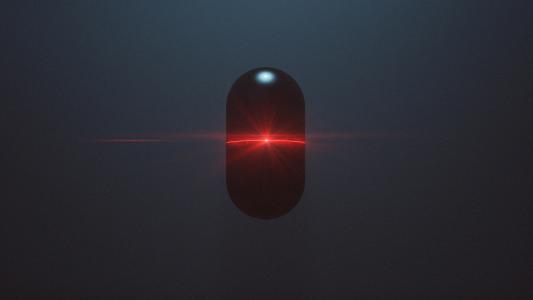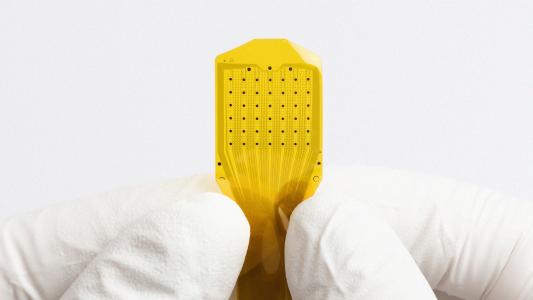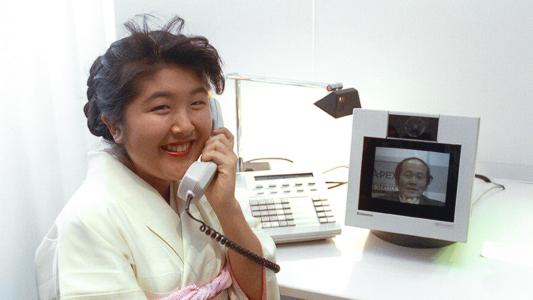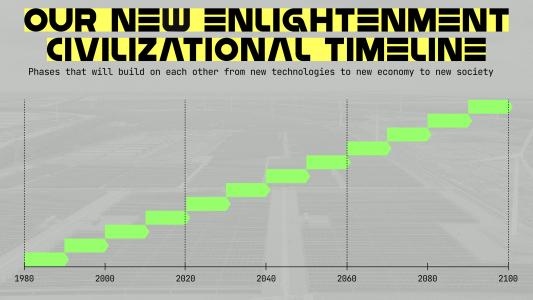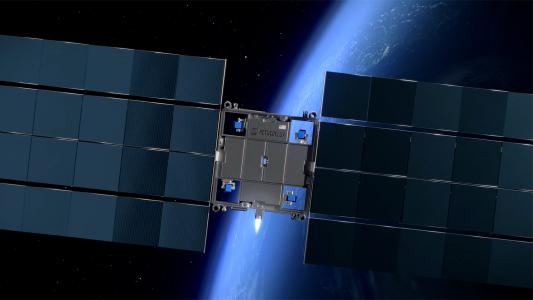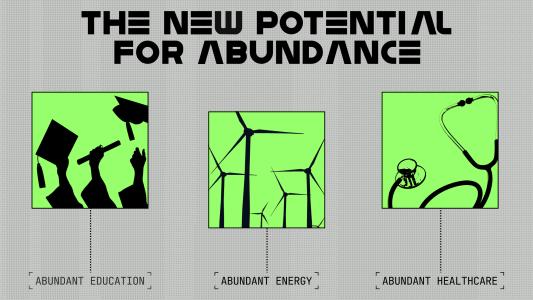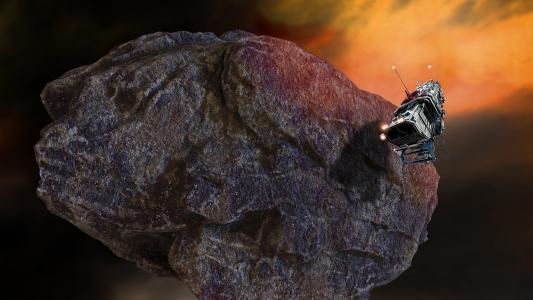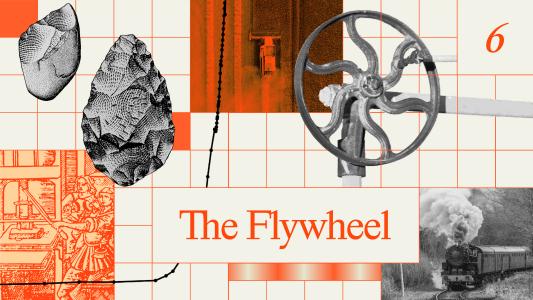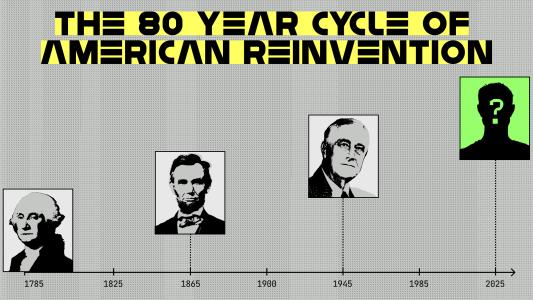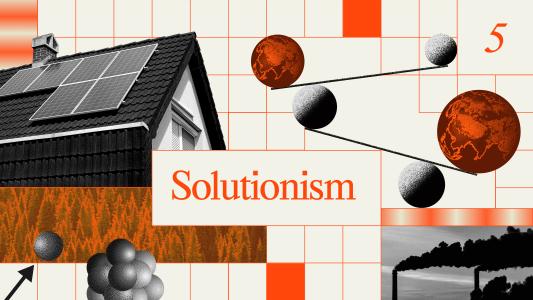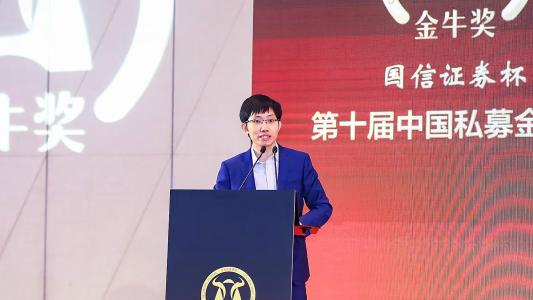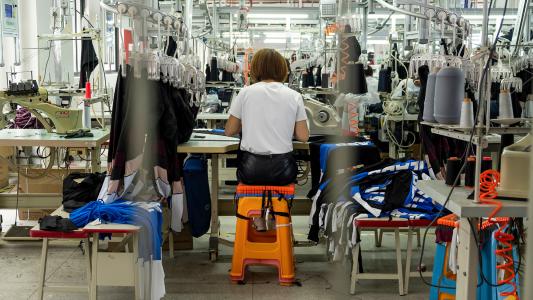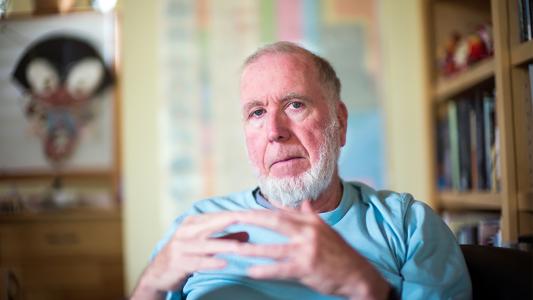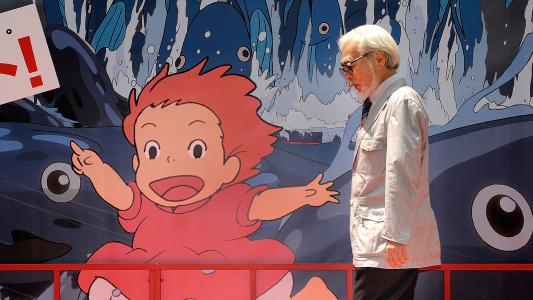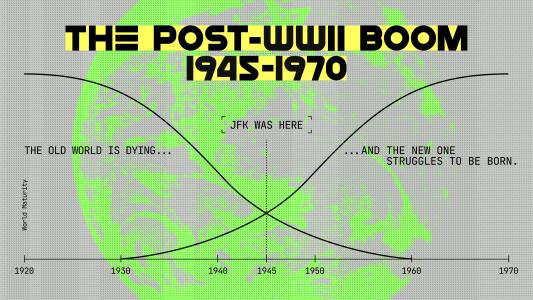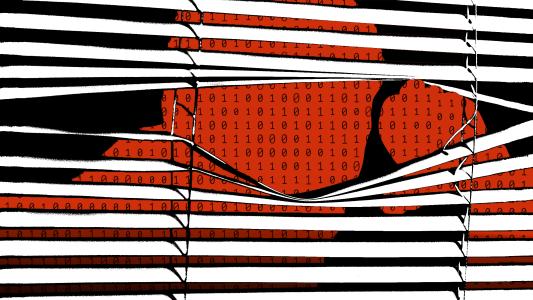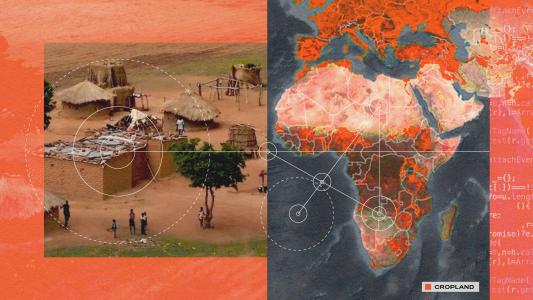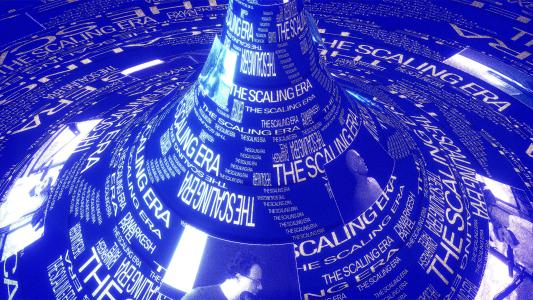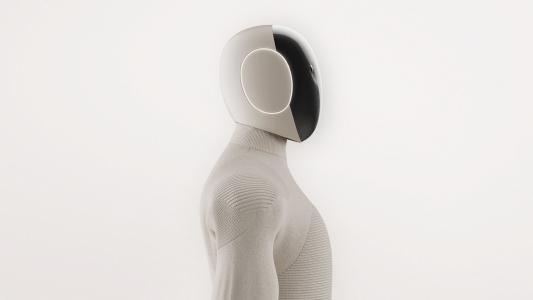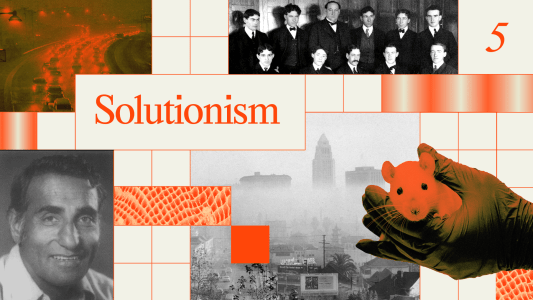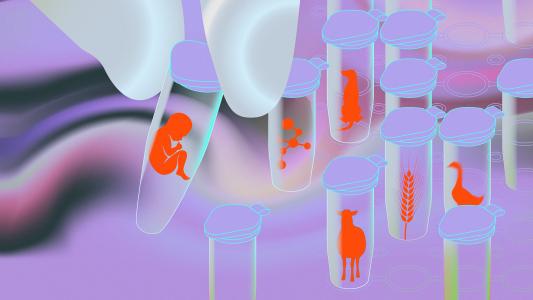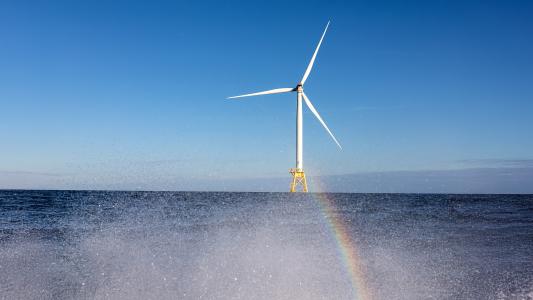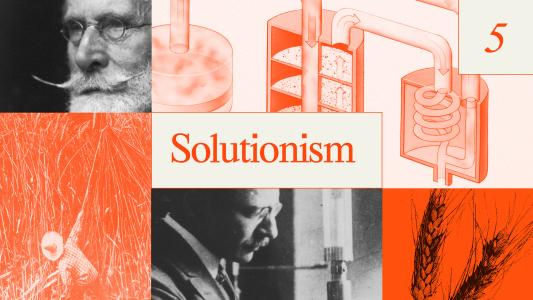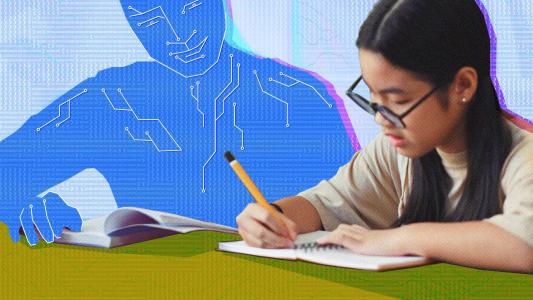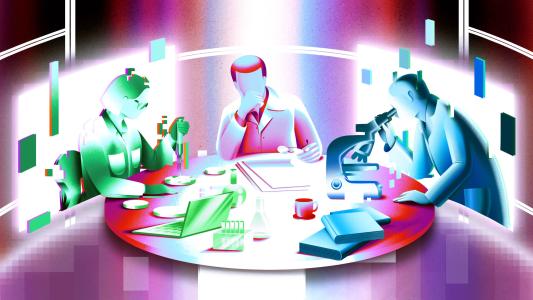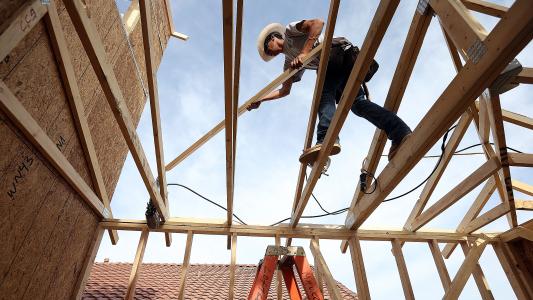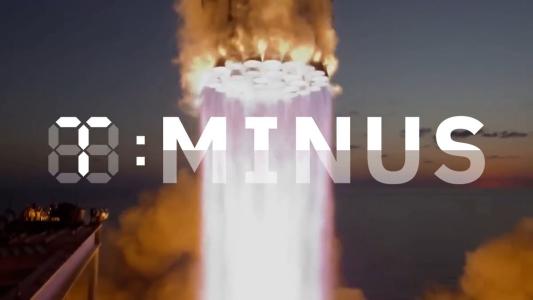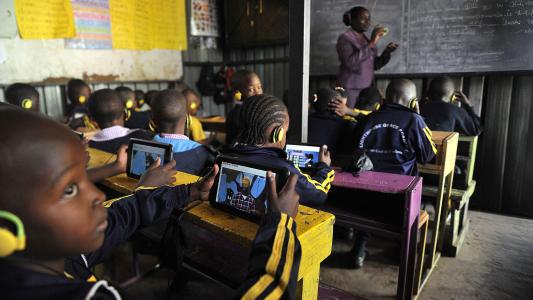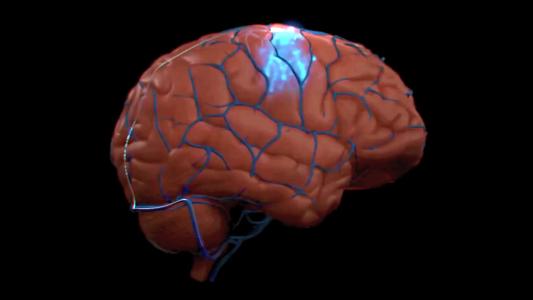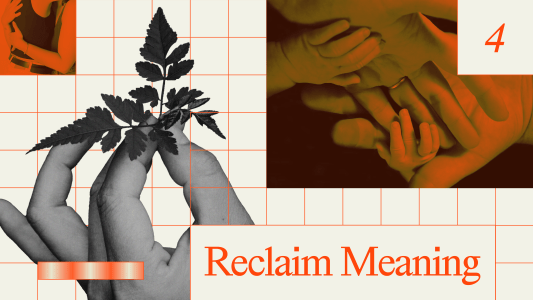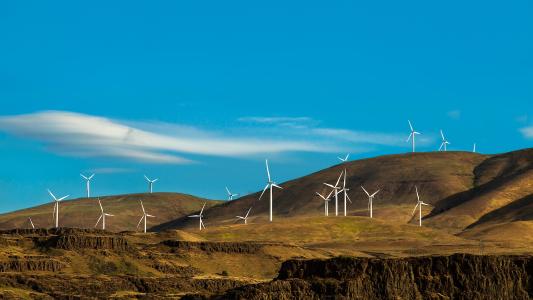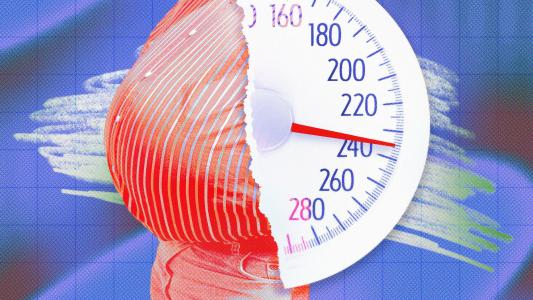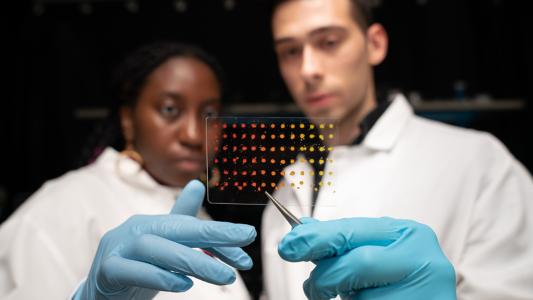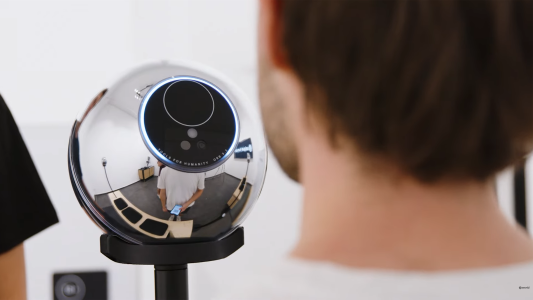The Eiffel Tower was considered techno-dystopian
Before completion for the 1889 World’s Fair, the Eiffel Tower project was treated by some as an industrialist "Tower of Babel."
From cryonics to aging: How AI is transforming human health
From curing rare diseases to extending lifespans, four biotech founders share how AI is rewriting the future of medicine.
What if humans mastered every aspect of nature?
A bold vision of a 10x better future where humanity has mastered biology, energy, and matter to unlock unprecedented progress.
Governing AGI: Model laws, chip wars, and sovereign AI
The US must regulate AI in a way that protects society, preserves America’s competitive edge, and fosters innovation — all at the same time.
The forgotten war on the Walkman
Today, the Sony Walkman inspires nostalgia, but in the 1980s, it was feared as a dangerous device that could disconnect society.
If we want artificial “superintelligence,” it may need to feel pain
Philosopher Jonathan Birch argues that sentience might be essential to “higher” forms of intelligence, including truly intelligent AI.
The age of industrialized imagination
By slashing costs, AI will spark a creative renaissance in the entertainment industry, leading to more working artists, not fewer.
World’s first nuclear electricity influencer envisions a “Rad Future”
An excerpt from "Rad Future: The Untold Story of Nuclear Electricity and How It Will Save the World" by Isabelle Boemeke.
America’s next grand mission: Build an AI-powered society for all
America’s new mission isn’t just to invent the new technology of AI. It must invent the systems that then make the most of AI.
AI’s next frontier: Modeling life itself
Biologists are skipping the petri dish and using AI-powered virtual cells to experiment in silico.
Second opinions in the age of ChatGPT
ChatGPT and other AI-powered tools are quietly reshaping how people interpret, challenge, and act on medical advice.
The real danger in “I, Robot” isn’t AI. It’s humans.
“I, Robot” is a convincing allegory in favor of embracing AI innovation rather than over-regulating, centralizing, and stifling it.
The Golden Dome should be built — just not the way Trump imagines
President Trump's headline-grabbing Golden Dome proposal can serve as the spark for a more realistic homeland defense upgrade.
In humanity’s dance with technology, people lead. Always.
As the history of tech demonstrates, we do not have to simply accept and adapt to AI. We can, collectively, choose what to do with it.
Silicon Valley has entered its superstar engineer era
In the race to AGI, tech companies are borrowing playbooks from sports, finance, and film to land elite talent. Here's why.
AI can dramatically expand human agency
If we get AI right, it will accelerate empowerment, enabling people to learn any subject, start any business, and realize any vision.
A personal assistant for everyone: The promise of ambient AI
We're leaving the app era and entering the age of ambient AI: intelligent help that’s always on, but never in the way.
Gen Z: We must resist the temptation to cheat on everything
Adopting the "cheat on everything" mentality — treating thinking as a burden AI can eliminate — is not only wrong, it’s dangerous.
Inside a neuroscientist’s quest to cure coma
Thousands of Americans are trapped in disorders of consciousness. Neuroscientist Daniel Toker is searching for a way out.
There are no new ideas in AI — only new datasets
Our next AI breakthrough will come when we unlock a source of data we’ve either overlooked or never fully harnessed.
Albert Einstein said automation caused the Great Depression. It didn’t.
Einstein blamed automation for the widespread unemployment of the Great Depression, but his reasoning was based on a false premise.
Has AI made “learn to code” obsolete?
Freethink talks to the creator of the world's most popular AI coding assistant to find out whether learning to code is still worthwhile.
AI is already in the classroom. It’s time colleges caught up.
Rather than banning AI, schools should adapt by designing assignments that promote responsible use and keep the focus on learning.
Google AI exec: “The mistake would be thinking this is hype.”
Bestselling author and Google Labs' Editorial Director Steven Johnson talks about the future of AI at Freethink's Great Progression event.
Siri co-founder: “No matter how smart AI gets, it’s not going to solve all our problems by itself.”
Adam Cheyer, co-founder of Siri and VP of AI Experience at Airbnb, talks about the future of AI at Freethink's Great Progression event.
This conservationist is trying to bring extinct species back to life
Ryan Phelan, co-founder of Revive & Restore, talks about the future of conservation at Freethink's Great Progression event.
Problem-solving is fundamental to human nature
Believing in the next solution is not blind optimism or even wishful thinking — it is a recognition that humans are problem-solving animals.
A call to innovators in Silicon Valley and beyond to help chart the new way forward
Peter Leyden sums up the key themes and big ideas of his new series at a Freethink Conversation in San Francisco.
Technophobia has a body count
Activists push scary headlines about the harm they predict a technology will cause, but ignore the good things we stand to lose without it.
The AGI economy is coming faster than you think
The impact of AGI on the economy will be big, it’ll happen fast, and it’ll be disruptive. Here's how the disruption could play out.
It’s far too early to call “peak ideas”
Economic growth is driven by ideas, not resources — and as history shows, the well of innovation is unlikely to ever run dry.
The war on artificial ice
Decades before states started banning lab-grown meat, manufactured ice was the "unnatural" alternative under attack.
What if you could start civilization over with AI?
Innovators in every industry and field should adopt the same mantra: If you could start fresh with AI, then what would you do?
How consensus can undermine science
The main objective of consensus statements appears to be to reduce doubt, which may stifle scientific inquiry.
Three founders look to the future at Freethink’s inaugural Great Progression event
The tech community came together for the launch of the Great Progression event series, curated by Peter Leyden and produced by Freethink.
Why AI today is more toddler than Terminator
In "Raising AI," author De Kai argues that AIs are more like society's children than machines under our control.
How proof-of-human tech could save the internet
Sam Altman’s World Network uses iris-scanning Orbs to give people a way to prove that they are people — and not AIs — online.
America tried to ban fake photos in 1912
Mistakes made by the US government 100 years ago could help us determine the best way to regulate AI-manipulated images and videos today.
The AI social network war has begun
A secret prototype, a hardware deal with Jony Ive, and millions of AI images suggest OpenAI is making a play for your social media feed.
Predictions of resource scarcity have a fundamental flaw
From where we stand, the true limits to growth are currently unknowable and need not affect any decisions we make today.
Are large language models dyslexic?
Despite outperforming humans at many tasks, multimodal LLMs struggle to read time on a clock — just like many people with dyslexia.
AI thinks “vegetative electron microscopy” is real — it’s not
The appearance of a nonsense term in multiple scientific papers has exposed how flawed data in training sets can become embedded in AIs.
Jony Ive has found his new Steve Jobs
Jony Ive and Sam Altman join forces as OpenAI acquires io, Ive’s secretive AI hardware startup, for $6.5 billion.
If progress has stalled, we need to know why
We need to figure out what drives progress, what might cause it to slow down or stop, and what, if anything, we can do to re-accelerate it.
Pac-Man turned 45 today. The surgeon general once warned that playing it could make kids violent.
Officials' warnings about the impact of video games on kids were never proven true. They may be making the same mistake with social media.
Grand Theft Auto 6’s delay could lead to a spike in real-life crime
If violent video games caused real-world violence, we'd see spikes in crime right after their release. Instead, we see the opposite.
Why Substack will be the intellectual engine of the 21st century
The 21st-century version of the Royal Society could be the Substack network that we are just starting to build out today.
Vibe coding is rewriting the rules of technology
Rather than meticulously crafting each line of code, developers can now “vibe” with AI tools using natural language.
Cheap AI is causing a power shift in the world’s militaries
The militaries that leverage the low-cost capabilities of AI the most will have a decisive advantage in the future.
Media has a blind spot when covering the AI panic
When news outlets quote warnings of an impending AI catastrophe, they rarely mention the two main movements behind this narrative.
Flexible brain implant takes major leap forward
The FDA’s clearance of Precision Neuroscience's flexible electrode array pushes the startup ahead in the race to BCI commercialization.
Indie developers may save the video game industry from itself
Indie developers continue to push the video game industry forward as big-name publishers focus on safe bets and machine-pressed sequels.
Skype is dead. Here’s why it almost wasn’t born.
Threatened by their low cost, traditional telephone companies tried to get long-distance internet phone services banned in the 1990s.
How AI could usher in The New Enlightenment
AI could trigger a civilization-scale change for humanity the same way the steam engine helped usher in The Enlightenment 250 years ago.
The billionaire building space lasers to power Earth
Space startup Aetherflux has a mission straight out of sci-fi: harvest solar power in orbit and beam it down to Earth via laser.
The missing tech case for how we create an era of abundance
AI and other new technologies could make things that are costly and scarce today, cheap and abundant for all tomorrow.
This startup is racing to mine the final frontier
AstroForge isn't afraid to take risks if it means being the first to mine asteroids for the rare metals we need for many clean energy technologies.
Why progress was so slow, for so long
Progress was agonizingly slow for most of human history, but the rapid progress of the last few centuries was not a fluke.
Why America reinvents itself every 80 years — and is doing so again
Three separate theories help explain why America enters a period of great progress every 80 years — and why another is coming soon.
What a historian in 2100 might say about Trump’s America
President Donald Trump might clear the way for the building of 21st-century systems and open up the political space for a new way forward.
“Stopping climate change” is the wrong goal
Anything that matters to humans should be under our control. The climate matters—so we should control the climate.
How DeepSeek rewrote the rules of the AI race
Chinese startup DeepSeek has proven that vast quantities of capital and cutting-edge chips aren't prerequisites for world-class AI.
America underestimates the difficulty of bringing manufacturing back
Tariffs won't bring manufacturing back to the US, but there are ways to make it happen — if America is serious about doing so.
Kevin Kelly points a new way forward into the Age of AI
One of the most original and optimistic thinkers in America helps build out some big through lines on what's possible with AI in the next 25 years.
The artifact isn’t the art: Rethinking creativity in the age of AI
ChatGPT's Studio Ghibli imitations invite questions about the creative value of people and what we really mean when we talk about creativity.
The next era of psychedelics may be precision-designed states of consciousness
A look inside Mindstate Design Labs' effort to design drugs that reliably produce specific states of consciousness.
America is going through its every-80-year reinvention
Futurist Peter Leyden finds parallels between America in 2025 and at three pivotal points in its history, each 80 years before the last.
How technology has transformed private espionage
Combining AI and a deluge of open data has enabled some intelligence vendors to surpass the capabilities of government agencies.
How local innovators are transforming the world
In partnership with Skoll Foundation
These changemakers show that social innovation thrives when it draws on the knowledge and lived experience of the people impacted.
Will LLMs lead to an artificial general intelligence?
An exclusive excerpt from AI podcaster Dwarkesh Patel's first book, "The Scaling Era: An Oral History of AI 2019-2025."
A dozen reasons to read Peter Leyden at this critical juncture in history
To truly understand our historic moment, you need a comprehensive, big-picture, long-term perspective that deeply understands artificial intelligence and the next wave of transformative technologies.
What is The Great Progression: 2025 to 2050?
We have a historic opportunity to harness AI and other transformative technologies in order to make a much better world in the next 25 years.
Humanoid helpers are now entering our homes
Robotics startup 1X Technologies is now sending its humanoid robots into homes to help people with chores and provide companionship.
Fire-resilient prefabs are helping LA build back better
Victims of LA's wildfires are opting for tech company Cover's prefab homes over traditional new builds. Here's why.
Progress happens because solutions create new problems to solve
Solutionism means fully accepting what’s in front of us and enthusiastically stepping up to meet the challenge.
Why are traditional climate solutions falling short in the American South?
In partnership with Skoll Foundation
Decades of disinvestment left Black communities in the South fighting for clean air and water. Now they're showing the nation what justice looks like.
Arc Institute’s new AI can read and write the code of life
Training on the DNA of nearly 130,000 species taught Evo 2 how to generate DNA sequences the same way other AIs do text or images.
All PCs will be AI PCs “pretty soon,” says Intel exec
Manufacturers are now equipping their PCs with the hardware needed to run the latest AI applications locally. Here's what that means for you.
We’re able to create new creatures through gene editing. What’s stopping us?
The question isn’t whether we can sculpt new life. The question is what comes next.
Today’s wearables track your body. Tomorrow’s could treat it.
Wearables that treat health issues, track countless biomarkers, and last far longer than today's devices are on the horizon.
How AI is reshaping the legal profession
AI-powered tools may already be giving some lawyers the upper hand in court.
These red-hot “green jobs” could help Gen Z cope with its eco-anxiety
"Green" jobs that help combat the climate crisis are on the rise, according to the World Economic Forum's Future of Jobs 2025 report.
Why nations are looking offshore to decarbonize their grids
Interest and investment in offshore solar, wind, and nuclear power systems is increasing as global efforts to decarbonize ramp up.
Blind optimism is not a cure for blind pessimism
We need to fully acknowledge problems, while vigorously pursuing solutions. Call it “solutionism.”
Sal Khan wants to give every student on Earth a personal AI tutor
Khan Academy's new AI tutor, Khanmigo, has the potential to revolutionize education for students and teachers alike.
Inside the “Virtual Lab” where AIs and humans collaborate
A “Virtual Lab” populated by AI scientists could overcome one of the biggest challenges in interdisciplinary research.
The startup using “digital twins” to protect homes from wildfires
Stand Insurance is using computer simulations and "digital twins" to help homeowners make their properties fire resilient.
Pantheon creator Craig Silverstein on uploading our brains to the internet
How the cult hit sci-fi show imagines a “techno-realist” future.
The US needs another 4 million houses. Here’s how it could get them.
Restrictive zoning policies helped create America's housing shortage. Zoning reform could help end it.
How AI is being drafted for a digital cold war
"Technology has always been co-opted for war, but truly intelligent AI, let alone a superintelligence, is a different beast entirely."
T-Minus: Counting down the top 10 space stories of 2024
A look back on the 10 greatest space stories of 2024, from SpaceX's "Mechazilla" to a first-of-its-kind civilian spacewalk.
How cryopreservation could end death as we know it
The technology could one day allow people with terminal illnesses to go into "hibernation" until a cure is found.
Google’s $1 billion bet on Africa’s digital future
Just 37% of sub-Saharan Africans use the internet today, but Google predicts the next 10 years will be the region’s “digital decade.”
How Neuralink’s chief competitor is tapping into the brain without surgery
Synchron’s brain-computer interfaces do not require brain surgery, but travel to the brain through the jugular.
How to reclaim meaning in a changing world
What if the barrier to a fulfilled life isn’t technology, it’s culture?
Should we turn the electricity grid over to AI?
AI could one day be woven throughout the grid management system — here are the pros and cons.
Has the US reached “peak obesity”?
A CDC survey suggests America’s obesity rate may be falling. Is this a turning point in the obesity epidemic? Or just a temporary plateau?
AI skeptic Gary Marcus on AI’s moral and technical shortcomings
From hallucinations to regulatory battles, Gary Marcus argues the AI status quo has failed us and it's time citizens demand something more.
The big problems driving nanotech development
Freethink talks to Brian Anthony, associate director of MIT.nano, on the enormous benefits – and challenges – of microscopic tech.
Can humans purge the bots without sacrificing our privacy?
A group backed by Sam Altman is pursuing the creation of "personhood credentials" that would prove an internet user is a real person.

